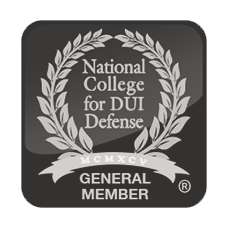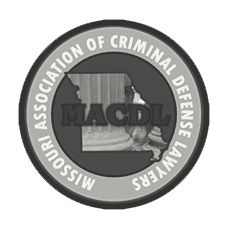If you were arrested for DWI, you have a lot to process and understand, but a St. Louis DWI lawyer from JCS Law can take away much of the stress and anxiety you may feel.
As a leading St. Louis DWI and criminal defense lawyer, John Schleiffarth is repeatedly recognized in the field of DWI and criminal defense in Missouri. His team of lawyers is experienced and talented. They can aggressively fight your case and help you restore your driving privileges quickly.
If you would like to schedule a free case review, please call us now or complete our contact form online to talk to a lawyer.
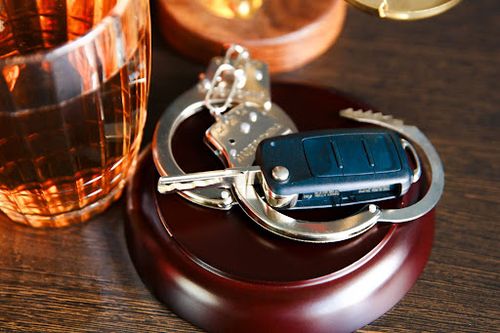
Charges we aggressively defend in Missouri
If you have been arrested for any of the charges listed below, you need bold and aggressive representation.
- BAC driving with excessive blood alcohol
- Commercial driver’s license (CDL)
- First-time DWI
- DWI under 21 years old
- DWI prior offender
- Felony DWI persistent offender
- Felony DWI aggravated offender
- Felony DWI chronic offender
- Felony DWI involving an accident and injury
- DWI assault
- DWI assault on a law enforcement officer
- DWI drug intoxication
- DWI manslaughter
- DWI murder
Don’t try and handle this on your own – Here’s why you need a St. Louis DWI attorney
A DWI in Missouri is a very serious charge. Jail time, fines, loss of license, and loss of employment are all potential consequences you could face. Even first-offense DWIs are serious. We recommend that you speak with a St. Louis DWI lawyer as soon as possible after your arrest.
What are the penalties for DUI in Missouri?
The penalties you may face for a DWI conviction vary depending on whether you are a first-time offender or have prior DWI convictions on your record.
| 1st offense | 2nd offense | 3rd offense | 4th offense | 5th offense | 6th offense | 7th offense | |
| Charge | Class B misdemeanor | Class A misdemeanor (Prior offender) | Class E felony (Persistent offender) | Class D felony (Aggravated offender) | Class C felony (Chronic offender) | Class B felony (Habitual offender) | Class A felony |
| Jail Sentence | Up to 6 months in county jail (minimum 48 hours) | Up to 1 year in county jail (minimum 10 days) | Up to 4 years in prison (or 1 year in county jail) (minimum 30 days) | Up to 7 years in prison (or 1 year in county jail) (minimum 60 days) | 5 to 10 years in prison (minimum 2 years) | 5 to 15 years in prison (minimum 2 years) | 10 to 30 , years in prison (minimum 2 years) |
| Fine | Up to $1,000 fine | Up to $2,000 fine | Up to $10,000 fine | Up to $10,000 fine | Up to $10,000 fine | No fine applicable | No fine applicable |
| License suspension | 30-day suspension, then 60-day restricted license | 1-year revocation (5 years if prior offense was within 5 years of the current offense) | 10-year revocation upon third conviction | 10-year revocation upon third conviction, lifetime revocation when driver is reinstated after a 10 year denial and is convicted of a subsequent alcohol related offense. RSMo 302.060(9) | 10-year revocation upon third conviction, lifetime revocation when driver is reinstated after a 10-year denial and is convicted of a subsequent alcohol-related offense. RSMo 302.060(9) | 10-year revocation upon third conviction, lifetime revocation when driver is reinstated after a 10-year denial and is convicted of a subsequent alcohol-related offense. RSMo 302.060(9) | 10-year revocation upon third conviction, lifetime revocation when driver is reinstated after a 10-year denial and is convicted of a subsequent alcohol-related offense. RSMo 302.060(9) |
What are possible defenses for a DWI charge?
A few examples of potential DWI defense strategies include:
The initial stop or search
The police are not allowed to pull you over just because they have a hunch or because you look suspicious. They must be able to point to specific facts supporting their suspicion that you have committed a traffic or criminal offense.
If they can’t, then anything that happened once they stopped you cannot be submitted into evidence (including, for example, any field sobriety test results or breathalyzer results).
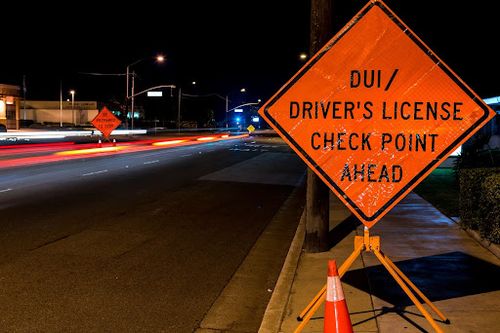
Improper use of a breathalyzer device
Was there a problem with the administration or calibration of the breathalyzer device? If the breathalyzer used in your test was not calibrated correctly, the result may be invalid.
Blood or urine tests
Blood and urine tests must be taken by a certified technician, but both of these tests are subject to contamination. Unrefrigerated tubes of blood or urine can ferment and spoil, and some medications can alter the results of a urine or blood test.
Field sobriety tests
These tests are easily misread and often improperly administered by law enforcement. For instance, these are just a few ways in which an FST can go wrong and produce a misleading result:
- Poorly trained law enforcement officer
- Pre-existing medical conditions
- Surroundings during testing
- Road conditions
- Footwear issues
- Weather
Video, reports, and other evidence
Once we obtain a copy of the video of the stop, does it clearly show the field sobriety test is conducted? Was there some reason that the field sobriety tests were not recorded?
If field sobriety tests were performed, but not corroborated by video evidence, this may be another potential area of defense. Video evidence is often the key to establishing a strong defense in a DWI case. We have many cases that have been dismissed due in part to our use of the video evidence.
Helping restore your license
When you are arrested in Missouri for drunk driving, your license will likely be seized immediately by law enforcement. A DWI lawyer in St. Louis with JCS law understands the importance of your ability to drive and we use every avenue possible to minimize, block, or avoid your loss of driving privileges. In most cases, we can keep you driving.
Notice of suspension or revocation
The process begins when you receive a notice from the police explaining that your license was suspended or revoked by the Driver License Bureau. Normally a copy of this notice, Missouri Form 2385 or Missouri Form 4323, is given to you at the time of arrest. If you did not receive a notice, contact us immediately.
(If you misplaced the letter, you may purchase a copy of your driving record at any Missouri license office.) You may be able to get a copy from the arresting agency. It is easiest to contact us for help.
Administrative hearing
You need to act within the first 15 days to protect your driving privileges. If you blow over the legal limit for alcohol, .08 or higher, you should receive a form 2385 (suspension notice) at the time of your arrest.
Don’t waste time – call a JCS Law St. Louis DWI lawyer to help you request an administrative hearing right away. You will receive a temporary permit in the mail. It will allow you to drive past the 15 days and at least until your administrative hearing which may be several months down the road. We discuss this in more detail below.
Temporary driving permit
If you refused a breath test, blood test, or another chemical test, you should receive form 4323 (a refusal form) at the time of your arrest. This form also serves as a 15-day temporary driving permit. If you do nothing, your license will be revoked for at least one year. We fight driver’s license revocations.
Fighting a refusal
If you receive a refusal notice, call one of our attorneys right away. We will need to file a Petition for Review in state court to challenge the revocation.
When we file the Petition for Review, we will also request a Stay Order from the judge, which will allow you to continue driving while we fight your revocation case. In St. Louis County, Jefferson County, and St. Charles County we can often work out an arrangement with the prosecutor’s office to ensure you win the revocation fight on a first offense. If no agreement is reached, we argue the revocation case to the judge. It is a form of trial, but it is in front of a judge and not a jury.
Fighting the license suspension
When we request an administrative hearing, several things will happen. We will request an arrest packet from the Department of Revenue which will include the police report, alcohol influence report, and copies of relevant maintenance and calibration test records pertaining to the machine used in your case. These things will help us fight any driver’s license suspension.
There are two key issues at an administrative hearing: (1) whether there was probable cause to arrest you for DWI, and (2) whether you actually blew over the legal limit taking into account all of the steps, checks, and protocols that must be followed for a breath test to be considered valid.
Police officers sometimes make errors in the steps, checks, and protocols which allow us to win your administrative hearing, get your license back, and exclude from evidence your breath alcohol test result.
What can you do if your license has been suspended or revoked?
We’ll be by your side during every step of the license reinstatement process.
Complete SATOP class
For the first 30 days of a driver’s license suspension, you will not have a hardship license available to you unless you get an Ignition Interlock Device (IID). We generally don’t recommend the IID as an entry remains on your driving record.
Once you hit the 30-day mark, if you have SR-22 insurance (an extra insurance rider required by the state), the DOR will issue you a 60-day hardship license, or Restricted Driving Privilege, which will allow you to drive to work and for many essential activities. It will be in effect for 60 days. During that 60 days, you will need to complete the SATOP class. Once you reach the 90-day mark from the date the suspension began, you will be eligible to reinstate your license.
Pay fines, submit proof of insurance, and more
This process is similar for first and second-time offenses. On a second offense, a driver must also get an IID and keep it in place for six months.
- Pay the $45 reinstatement fee
- File and maintain proof of SR-22 insurance
- File proof that you successfully completed a Substance Abuse Traffic Offender Program (SATOP)
- (If you have more than one alcohol- or drug-related arrest) File proof of installation of an Ignition Interlock Device (IID)
- (If your license was revoked for one year) Retake the complete driver exam
- Note that (SR-22 insurance needs to remain in place for two years following a suspension.
JCS Law is also skilled in preventing license suspension from ever taking place. We can argue against suspension, revocation, or denial.
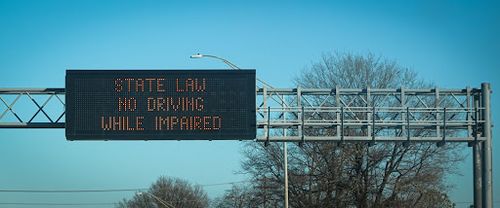
What is the DWI defense process?
First, remember that we do offer a free initial consultation. At that initial meeting, we will discuss the details of your St. Louis or Missouri DWI case and begin to identify potential legal issues based on your memory. If you decide to hire us, the case will likely proceed like this:
1. Arraignment: Your first court appearance
After you are arrested, the court is required by law to formally tell you the charges the prosecutor is bringing against you. This is also the time in which you must plead “guilty” or “not guilty.” Ideally, you will have obtained a St. Louis DWI attorney prior to your arraignment so that he or she can either appear on your behalf (they can often waive your appearance so you don’t have to take off work) or go with you to the court.
If you hire St. Louis DWI lawyer John Schleiffarth for your St. Louis County DWI, he would likely enter a not-guilty plea on your behalf in front of one of the St. Louis County Court judges. Before this first appearance, if you hire our DWI firm, we would also likely have already started working on your Missouri Administrative License Suspension.
In other words, we would either seek an appeal of the suspension, a stay of revocation, or relief through acting to protect your driving privileges.
2. Discovery: Find out what evidence the prosecutor has against you
The St. Louis or municipal (if transferred from a municipal court) prosecutor’s office is required to give us everything they have–including any evidence showing that you were not impaired.
For example, if the police officer notes bloodshot eyes and slurred speech, yet your booking photo shows clear eyes and the video shows you speaking clearly, we need that evidence at trial. Many police officers, highway patrolmen, or sheriff’s deputies delete these records if they are not properly requested and preserved.
3. Evaluate the evidence
Now is when having a St. Louis DWI lawyer is really important. For our clients, in this phase, we start digging into the evidence the St. Louis County Prosecutor has provided, as well as talking to witnesses in our own investigation. The police report, the dash cam video, witness statements, and results from the breathalyzer or blood test could all have possible weaknesses that we could exploit.
This is where we identify all possible defenses and start really building your case.
4. Pretrial conference
The pretrial is a chance to meet with the judge and the prosecutor to discuss the status of the case and any pending issues. For example, we might discuss whether all discovery, videos, and other evidence have been handed over. Also, we may discuss pending motions (see below), continue negotiations with the St. Louis County or municipal prosecutor, and address our client’s eligibility for driving privileges.
5. File and argue motions
Once we identify weaknesses in the prosecutor’s case, we may need to file a motion to suppress or another motion to the judge to argue that the results of the breathalyzer or other sobriety test should be excluded at trial. Whether and how motion practice will be used in your case will depend on the details of your arrest. Motion practice can be quite effective in helping to bring along negotiations with the prosecutor’s office.
6. Negotiate with the prosecution
At this stage, Attorney John Schleiffarth will take our arguments to the prosecutor and explain why their office should dismiss or reduce the charges given the flaws in their case. Depending on the evidence, the prosecutor will sometimes agree to dismiss or reduce the charges. Other times, the prosecutor will refuse to budge and that brings us to our final step.
7. Trial
If the case cannot be resolved by negotiation, it will proceed to trial. In a St. Louis County Municipal Court, you can have your case heard by a judge, and if you lose, appeal the case to the County Court and have it heard again. In a jury trial, the prosecutor must prove you were impaired beyond a reasonable doubt and all 12 jurors must agree on your guilt.
Helping expunge the charge
A drunk driving charge can be embarrassing and haunt you for years. If you or a loved one has a DWI on their record, an experienced St. Louis DWI lawyer should know that it may be eligible for a full expungement under RSMo 610.130.
DWI/DUI expungement procedure
Under Missouri’s DWI expungement statute (Mo. Rev. Stat. 610.130), individuals with past DWI convictions or other findings of guilt may be eligible for expungement of the DWI through the Missouri court system.
Under Section 610.130, the person seeking expungement may have only one DWI on their criminal record, and those with Commercial Driver’s Licenses are generally excluded. Felony DWI charges are also not eligible for expungement under current law, and nor are repeat (2 or more) misdemeanor DWI offenders. Only one DWI expungement is currently allowed in a person’s lifetime.
I’m eligible – now what?
Once it’s been determined that you are indeed eligible for expungement of your DWI, a petition must be filed at the local circuit court to expunge your record. Notice will go out to the various agencies involved, often including the local police or sheriff’s department where the original stop occurred, the prosecuting attorney’s office, as well as the Missouri State Highway Patrol which holds the criminal records repository for the State of Missouri.
Typically within sixty days, a hearing date will be set. At the hearing, if the court finds that you have not been convicted of any subsequent intoxication-related traffic or boating offenses and no subsequent intoxication-related enforcement contacts, then the court shall enter an order of expungement (RSMo 610.130.2).
The effect of this order of expungement is to restore you to the status you occupied prior to the arrest, plea, or conviction “as if such an event had never taken place” (RSMo. 610.130.3).
How can a St. Louis DWI lawyer help?
When a client walks into our office, one of the first things we ask is what happened. We want to know the facts behind the initial stop by the police, any searches performed, any tests taken, and any conversations between our client and the police. We also want to examine any paperwork the police gave to our client. With this information, we begin to analyze the defenses that may be available to the DWI charge.
St. Louis DWI Lawyer John Schleiffarth has significant experience defending clients facing DWI charges in the St. Louis County Court and the St. Louis County Municipal Courts. He knows the system inside and out and can offer unique insight into your best options for beating or reducing your charges.
Should I just go to court on my own and plead no contest?
The “no contest” plea is often misunderstood. In almost every case, if you plead no contest to your DWI charge, the judge will find you guilty almost immediately thereafter. A “no contest” plea means you are admitting to all of the facts alleged in the complaint. What’s more, you give up your right to a trial and your right to put on witnesses in your defense. A “no contest” plea is sometimes called an “Alford Plea”. You may hear both terms used.
In the case of a DWI, the complaint might allege that you had glassy eyes, that you had a strong odor of alcohol, that you were slurring your words, that you failed the field sobriety tests, or that you blew over the legal limit. If you plead “no contest,” then you are admitting that all of these facts are true. The judge will in almost every case have no choice but to find you guilty. It has the same effect as a guilty plea in terms of punishment.
Arrested? Call our St. Louis DWI lawyer today
Fill out our contact form to the right and one of our attorneys will contact you as soon as possible to discuss the details of your case.
If you would like to speak with a St. Louis DWI lawyer right away, call (314) 561-9690. We are on call 24/7 to answer questions about DWI cases in St. Louis and throughout eastern Missouri.
75 W Lockwood Ave #250, Webster Groves,
MO 63119, United States
Featured In:

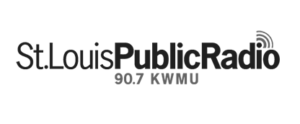




Award winning
law firm
120 S Central Ave #1550
St. Louis MO 63105



